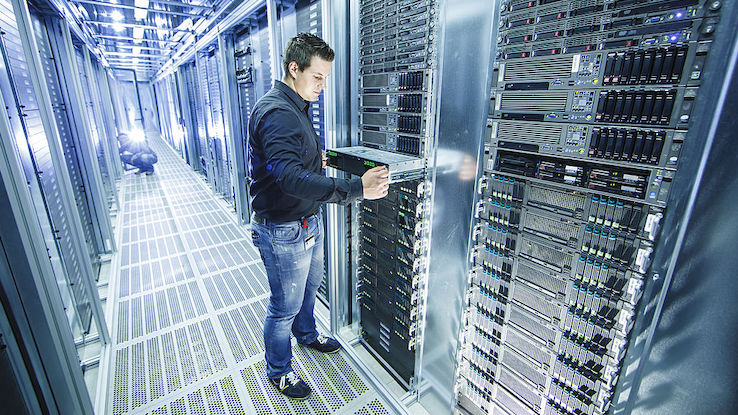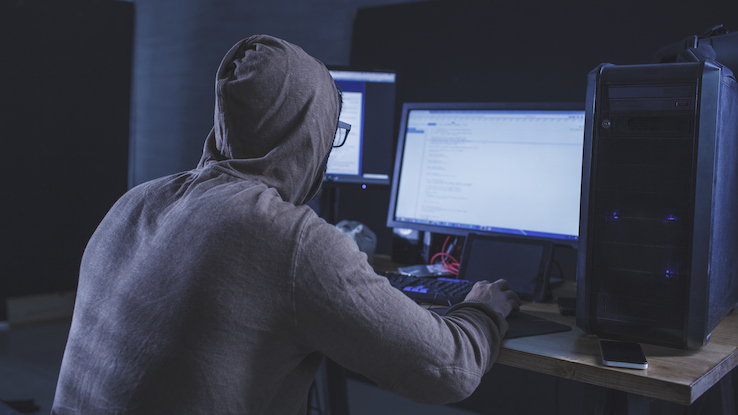Network Forensics is a Fast

Security and privacy are big concerns these days, particularly when it comes to dealing with sensitive information on the internet. From passwords to credit card details, there are lots of details you want to keep safe — and that's especially true if you're running a business and need to keep clients' details safe. But even if you don't provide this type of information online, you still have a right to privacy. You're allowed to remain anonymous if you want to, whether that's to protect your identity from hackers or simply to enjoy more peace of mind.
Interested in maintaining your anonymity online? That's where a virtual private network, or VPN, comes in. Learn more about this privacy tool, including how it works and how it can keep you safer while using the internet.
The Basics of Sending Information Online
To understand how a VPN works, it also helps to know a little bit about how the internet itself works. The internet is made up of massive networks of interconnected machines called servers, which store, process and display website data to users. When you type in a website address, perform a search or otherwise access sites and information online, the data you input to do so travels to the server in what's called a packet.

The packet includes details for the server about how to process your request, and this information also makes your internet protocol (IP) address available. This is an identifying number that belongs to your computer and to any devices using your internet service to browse online (they each have their own IP addresses). Any data that's associated with activity coming from your IP address can be visible to other people who are accessing the same internet network as you and to your internet service provider. The same is true for unsecured and public networks, like that free Wi-Fi you use down at the local coffee shop.
So, as your computer is sending out packets and data to servers while you use the internet, hackers can intercept those packets and get the data in them. That means they can get your IP address and other sensitive information you might have provided, like usernames and passwords. To prevent this from happening, you can use a VPN.
VPNs protect the data you send by encrypting them. This means they convert your information into a different format that servers can still understand but hackers and others on your network can't. VPNs also make it harder for hackers to access the information you're sending in the first place.

Think of it like this: A normal internet network is like a typical city street. Cars — or your packets — travel freely down the road, and drivers (some of whom are hackers) can see each other and maybe get out and shake their fists when they're experiencing road rage. A VPN, on the other hand, is like a private tunnel. When you're driving through it (sending packets with your data), other drivers can't see you, and they'll have a much harder time stopping your car. Essentially, VPNs conceal all the data you send to a server when you're completing different tasks online. This helps keep your information out of the wrong hands.
How Do VPNs Work — and Help?
Remember how the internet is a connected network of servers, and when you're not using a VPN, your data travel — relatively unprotected — to those servers to show you different websites? VPNs work by inserting an extra server into the equation. Instead of traveling directly to a site's server, when you use a VPN, your information travels to the VPN's server. There, it's scrambled before being sent on to the destination server. This keeps the destination server — the site you're visiting or where you're entering personal details — from learning your information.

There are several benefits to this, aside from the fact that your personal information is more secure when you send it through a VPN. For one thing, VPN servers are located all over the world. That can make it appear to your destination website as though you're in a different country. Why would you want to do that? It can get you cheaper prices on things like flights and hotel rooms, for one thing. Quotes for pricing for these services can vary widely by country because of exchange rates and the value of local currency, so it's possible to get a better deal if the travel site thinks you're in a different country.
Another reason why it's helpful to use a VPN involves cookies — not the tasty kind. Cookies are small packets of data about you or your usage of a specific website that are stored in a place where your internet browser can access them. When you visit a website often, it accesses the cookie on each visit and "remembers" who you are. It may also save certain data you type into the website. The site may also collect other data about you, such as your location information, and use it for marketing purposes. Sometimes, however, websites sell these data. Governments can also request them and see the IP addresses associated with the information. If you're using a VPN, the associated IP address comes from the VPN server, not your computer, so VPNs also prevent the transfer of your personal information in a way that maintains your privacy.
Source: https://www.questionsanswered.net/tech/virutal-private-network-vpn-defined?utm_content=params%3Ao%3D740012%26ad%3DdirN%26qo%3DserpIndex&ueid=e13f1442-f82d-4bad-8876-ea71b7bd93f4
Belum ada Komentar untuk "Network Forensics is a Fast"
Posting Komentar